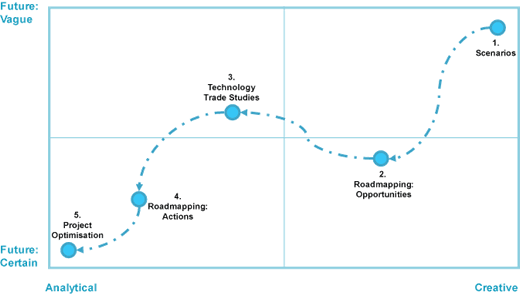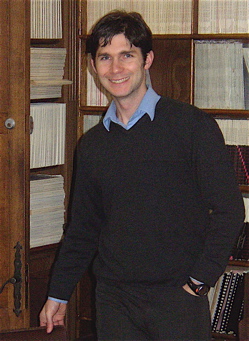|
| MSSL Website |
TECHNOLOGY PLANNINGTechnology has existed since the birth of humanity, since the first stone tools were made around 2.4 million years ago, and has been an incessant fuel of economic growth in Europe since around 9000 B.C. Today, the growth of the global economy, and the increases in living standards that this makes possible, are still tightly coupled with the development of new technology. At an organisational level, individual scientists, engineers and their managers contribute to mankind’s technological expertise, and hence indirectly influence living standards both in the developed and the developing world. Yet our research has found that in many firms, particularly in small firms with limited resources, the development of technology is stifled by poor planning.
We have also developed a range of tools for technology planning workshops that allow us to get actionable results with the minimum of input from key participants. Continuing to learn from our research, from our experience in facilitating technology planning workshops and from the technology management literature, we have developed a strong capability in technology planning.
This page last modified 25 July, 2008 by Michael Emes |
|


